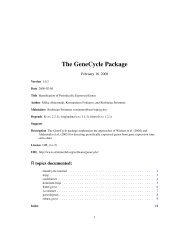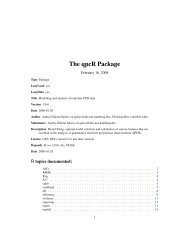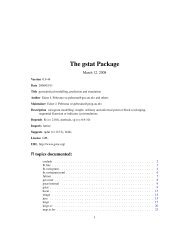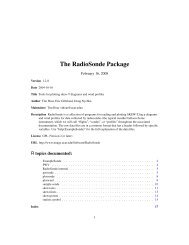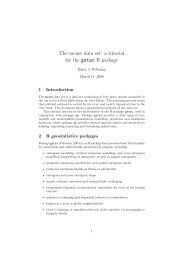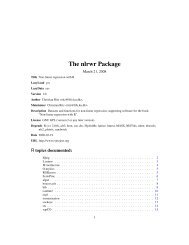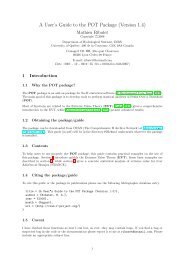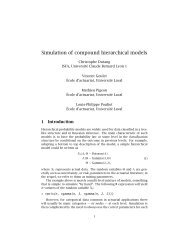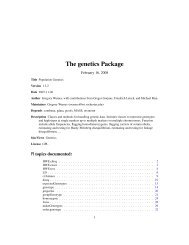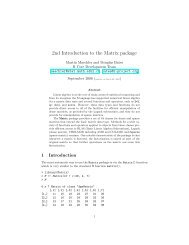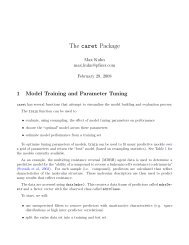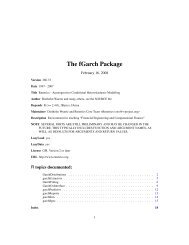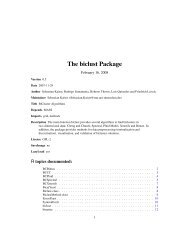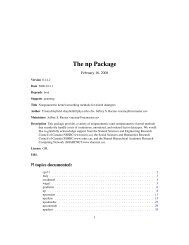The sfsmisc Package - NexTag Supports Open Source Initiatives
The sfsmisc Package - NexTag Supports Open Source Initiatives
The sfsmisc Package - NexTag Supports Open Source Initiatives
Create successful ePaper yourself
Turn your PDF publications into a flip-book with our unique Google optimized e-Paper software.
10 QUnif<br />
QUnif<br />
Quasi Randum Numbers via Halton Sequences<br />
Description<br />
Usage<br />
<strong>The</strong>se functions provide quasi random numbers or space filling or low discrepancy sequences in the<br />
p-dimensional unit cube.<br />
sHalton(n.max, n.min = 1, base = 2, leap = 1)<br />
QUnif (n, min = 0, max = 1, n.min = 1, p, leap = 1)<br />
Arguments<br />
n.max<br />
n.min<br />
maximal (sequence) number.<br />
minimal sequence number.<br />
n number of p-dimensional points generated in QUnif. By default, n.min =<br />
1, leap = 1 and the maximal sequence number is n.max = n.min +<br />
(n-1)*leap.<br />
base<br />
integer ≥ 2: <strong>The</strong> base with respect to which the Halton sequence is built.<br />
min, max lower and upper limits of the univariate intervals. Must be of length 1 or p.<br />
p<br />
Value<br />
Note<br />
leap<br />
dimensionality of space (the unit cube) in which points are generated.<br />
integer indicating (if > 1) if the series should be leaped, i.e., only every leapth<br />
entry should be taken.<br />
sHalton(n,m) returns a numeric vector of length n-m+1 of values in [0, 1].<br />
QUnif(n, min, max, n.min, p=p) generates n-n.min+1 p-dimensional points in [min, max] p<br />
returning a numeric matrix with p columns.<br />
For leap Kocis and Whiten recommend values of L = 31, 61, 149, 409, and particularly the L =<br />
409 for dimensions up to 400.<br />
Author(s)<br />
Martin Maechler<br />
References<br />
James Gentle (1998) Random Number Generation and Monte Carlo Simulation; sec. 6.3. Springer.<br />
Kocis, L. and Whiten, W.J. (1997) Computationsl Investigations of Low-Discrepancy Sequences.<br />
ACM Transactions of Mathematical Software 23, 2, 266–294.



